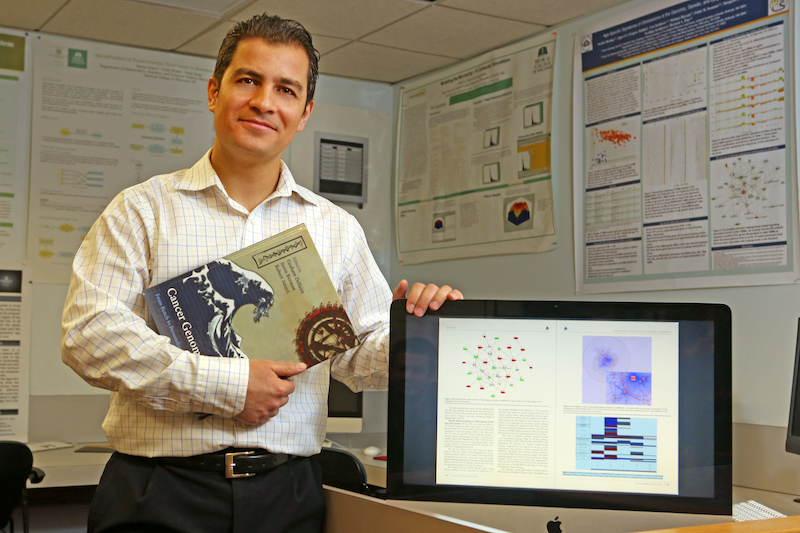Marquette computer science professor receives $1.8 million grant for precision medicine research
Dr. Serdar Bozdag's research is aimed at developing methods for analyzing existing biological and clinical datasets to predict disease-associated genes and patient-specific drug responses.
MILWAUKEE — Dr. Serdar Bozdag, assistant professor of computer science in the Klingler College of Arts and Sciences, has received a $1.8 million Maximizing Investigators’ Research Award from the National Institutes of Health for his research on precision medicine through the development of an integrative computational model.
Bozdag’s research is aimed at developing methods for analyzing existing biological and clinical datasets to predict disease-associated genes and patient-specific drug responses. Large initiatives around the world are ongoing and yielding vast amounts of data from millions of individuals. Bozdag hopes to develop a scalable method that can integrate different layers of datasets across millions of individuals from different backgrounds.
“Computational methods that perform secondary analysis of publicly available datasets can pave the road towards precision medicine,” Bozdag said. “The goal is to develop a model that will enable more effective treatments to patients and reduce health care costs. We aim to extend our recent and ongoing work to find context-specific regulatory interactions and modules, and to predict disease associated genes and patient-specific drug response.”
“The important work Dr. Bozdag and his lab have done to this point is exciting,” said Dr. Iqbal Ahamed, chair and professor of computer science at Marquette. “While this award certainly shines a light on the great advances coming out of Marquette, it will also go a long way in aiding his lab in its goal of providing a method to develop more precise and effective medical treatments.”
The MIRA is spread out over five years and is worth $1,787,536. It is intended to provide support for the research in an investigator’s laboratory that falls within the mission of the National Institute of General Medicine Sciences. The goal is to increase the efficiency of NIGMS funding by providing investigators with greater stability and flexibility, thereby enhancing scientific productivity and the chances for important breakthroughs.
NOTE: This press release was submitted to Urban Milwaukee and was not written by an Urban Milwaukee writer. While it is believed to be reliable, Urban Milwaukee does not guarantee its accuracy or completeness.
Mentioned in This Press Release
Recent Press Releases by Marquette University
New Marquette Law School Poll finds large majority of Wisconsin voters not yet tuned in to who is running in major 2026 elections
Oct 29th, 2025 by Marquette UniversityNo candidate has established strong position in public favorability in governor, state Supreme Court races; large majorities of voters undecided
New Marquette Law School National Survey Finds Large Majority Think Political Violence is a Big Problem, But With Sharp Partisan Differences
Oct 1st, 2025 by Marquette UniversityAmericans are overall pessimistic on reducing intense political conflict; half of those polled say heated language by leaders makes violence more likely






















